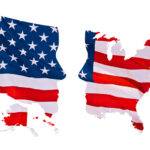As Trump indictments come raining down, we are witnessing the futile efforts of lawyers to deal with his out- of-control threats against those who have criticized him, including the judges. They have little chance of succeeding, because fear has worked for him all of his life, and will work for him again. Fear works. We’ve spent seven years watching its effect on the Republican Party, to say nothing of the effect of conspiracy theories on the vulnerable. The destructive effect of fear on the country is distressing enough, and its less obvious but unmistakable presence on the liberal side is even more so.
On the Right, Trump threatens political figures with loss of power, with the end of their careers. The dissenter’s choice is between silence or exclusion from the group that gave them, a voice. It’s not hard to understand why most choose silence. Trump also gave his working class base the voice they lost when Democrats shifted from blue collar to identity politics. The exultation of mob power is intoxicating, and polarization had reached the point where opponents had become enemies. Dissent not only costs the speaker the power of the group, it has become dangerous. If ever we needed proof that humans are social animals, the last seven years have given ample evidence. If you need more, the rising suicide rate of our teenagers should give us a devastating picture of the effect of shunning by the social media. The Internet magnifies the power of the group, but it’s not the source.
Our fear gives the group power, and as we bring Trump himself closer and closer to accounting for his crimes, we’re affecting his power very little—his base, out of fear of losing their power once again, has given him the power of a despot. In a world that globalism and technology has carried beyond their reach, he has given them power, and in turn they give him immunity from the law.
It’s more distressing that the liberal side, though they hold dominance by a very slim margin, is indulging in a despotism of its own. In the writers’ world, publishers, I hear, won’t touch a book if the protagonist is of a different ethnicity than the author. Apparently, the scions of Political Correctness rule the marketplace, and fear of being labeled “racist” silences us all. Fear works; silencing is a deadly game. The source of creativity is our ability to imagine ourselves in another’s shoes. That is also the heart of compassion, understanding and respect. I suspect this has been going on for a while, and I should consider myself lucky to have found publishers, albeit micro, for my work. What happens now to such lovely works as Sue Monk Kidd’s The Invention of Wings?(https://www.amazon.com/s?k=the+invention+of+wings&i=stripbooks&crid=) or Arthur Golden’s Memories of a Geisha—which is written from the point of view of a Japanese woman?
I don’t know publishers’ policy on secondary characters, but evidently I cannot write from the point of view of an ethnicity less advantaged. That I should not create characters I don’t respect, I understand; the condemnation of “straw man” characters is longstanding in the literary world, and I’ve always followed the edit of John Gardner: “don’t create characters you cannot love.” But I fail to see how such blanket censorship promotes inclusion. Quite the opposite; it confines each race to their limited, and biased understanding. As long as it continues, how can liberals object to the Right’s banning of liberal books?



Comments are closed.